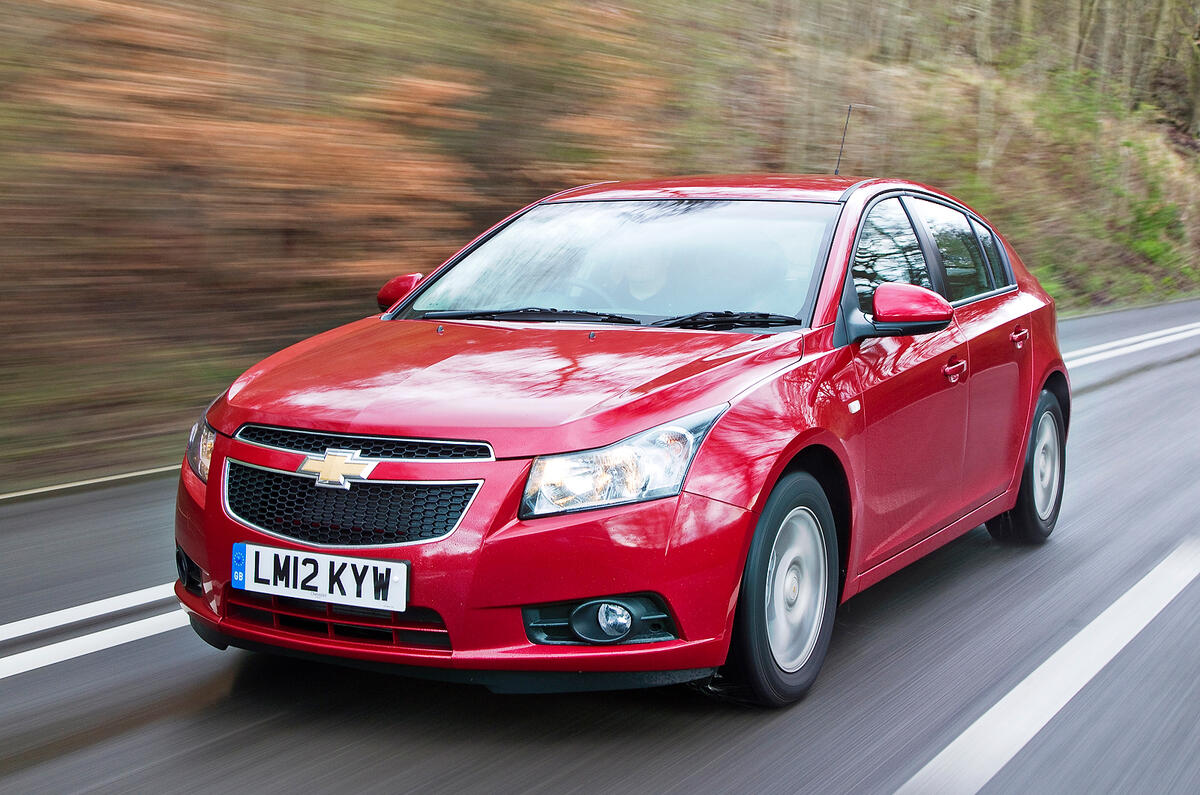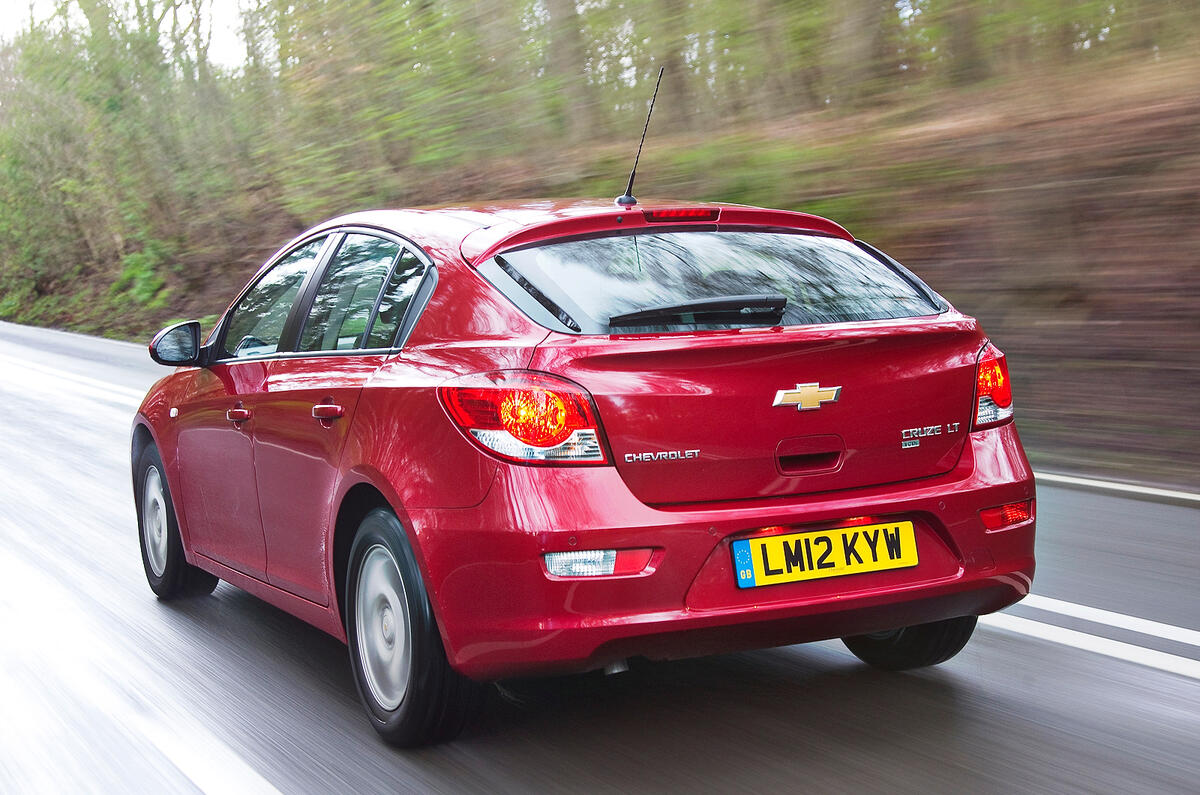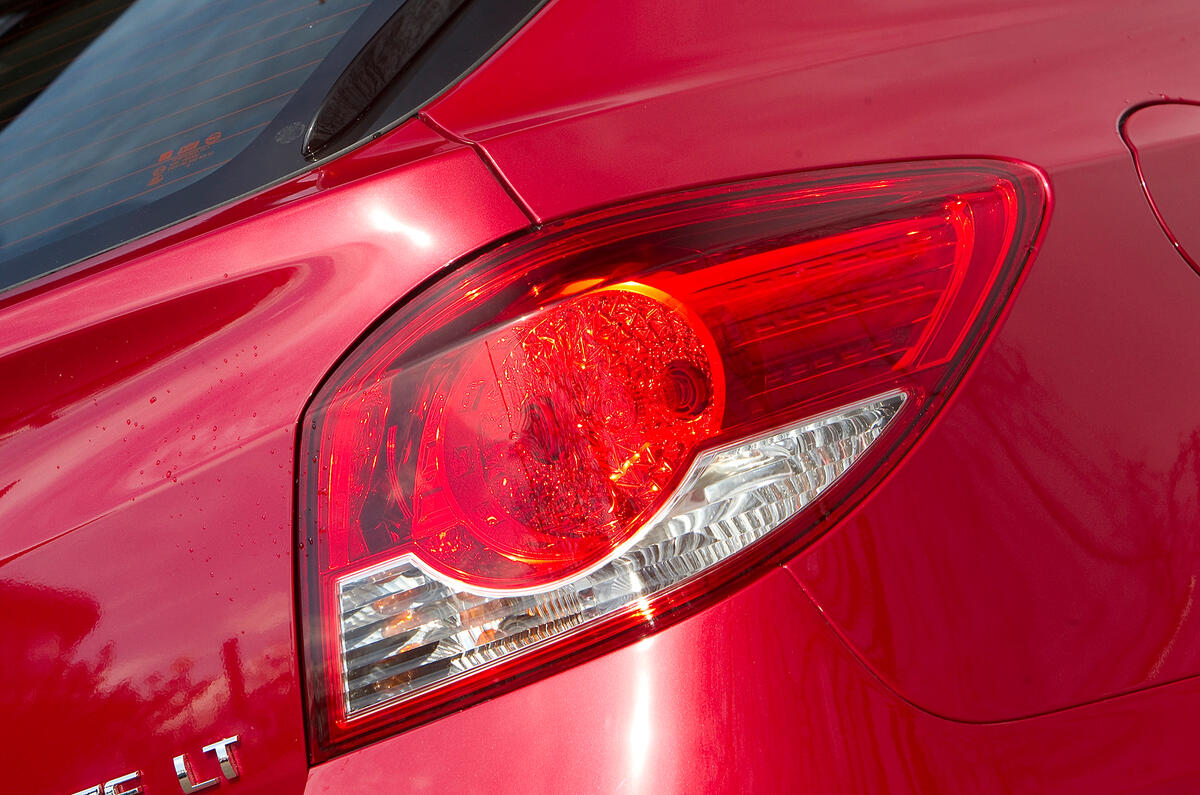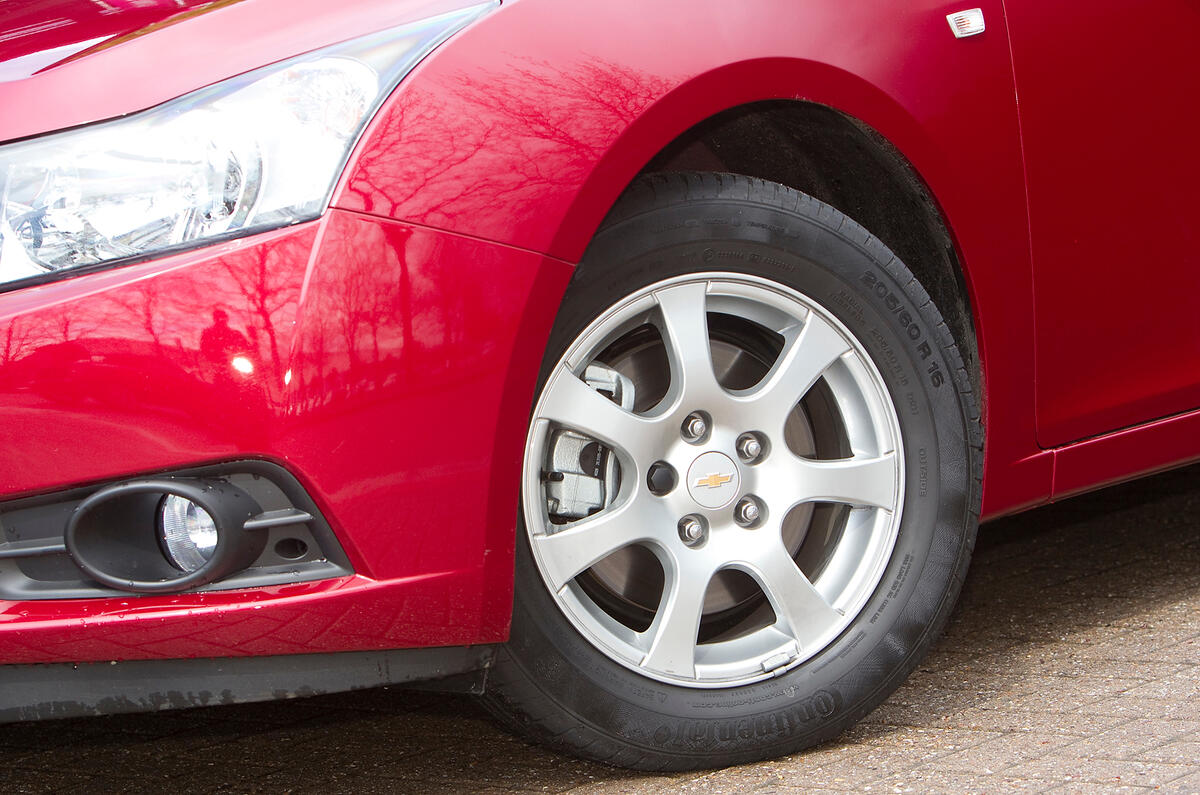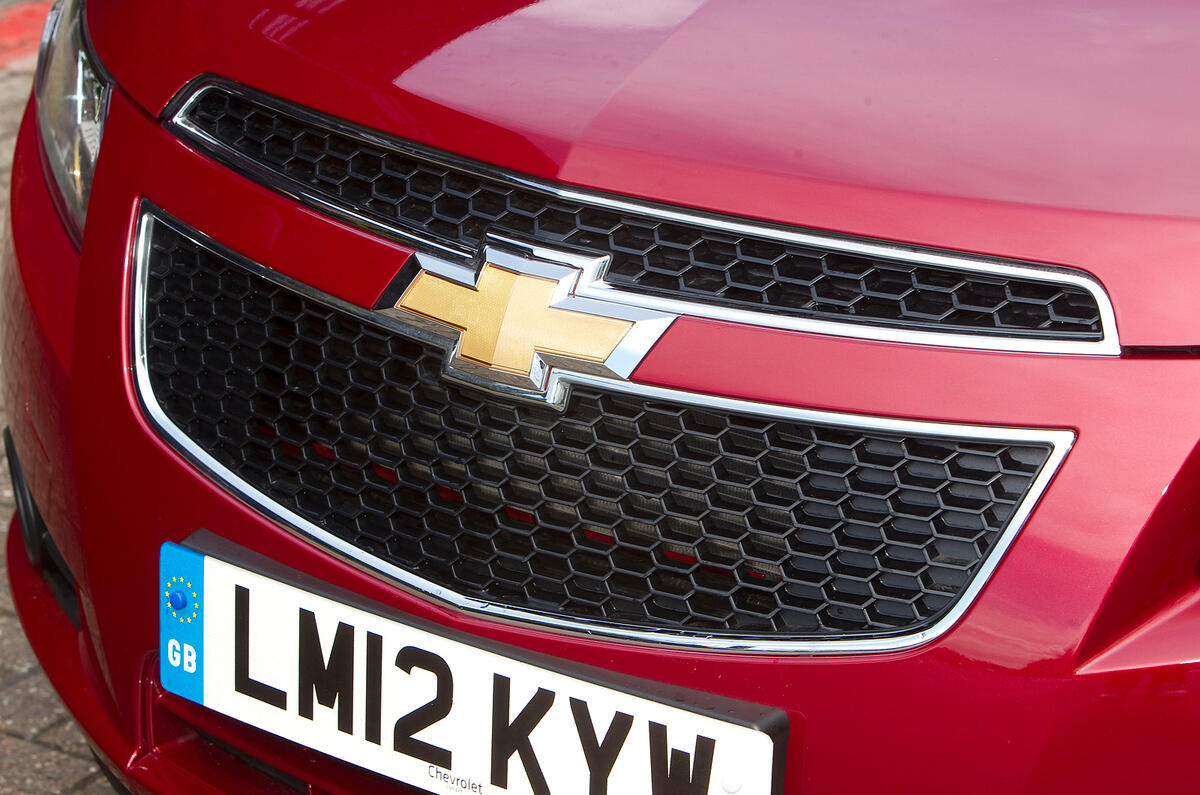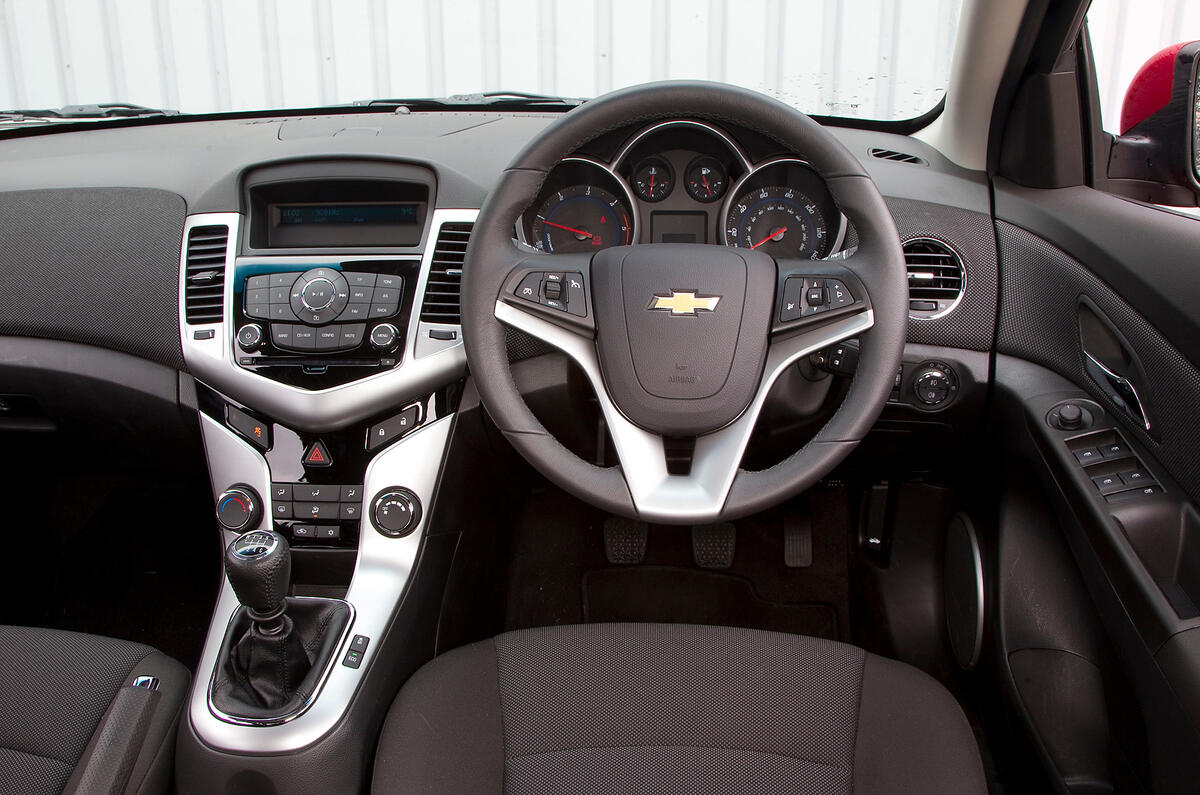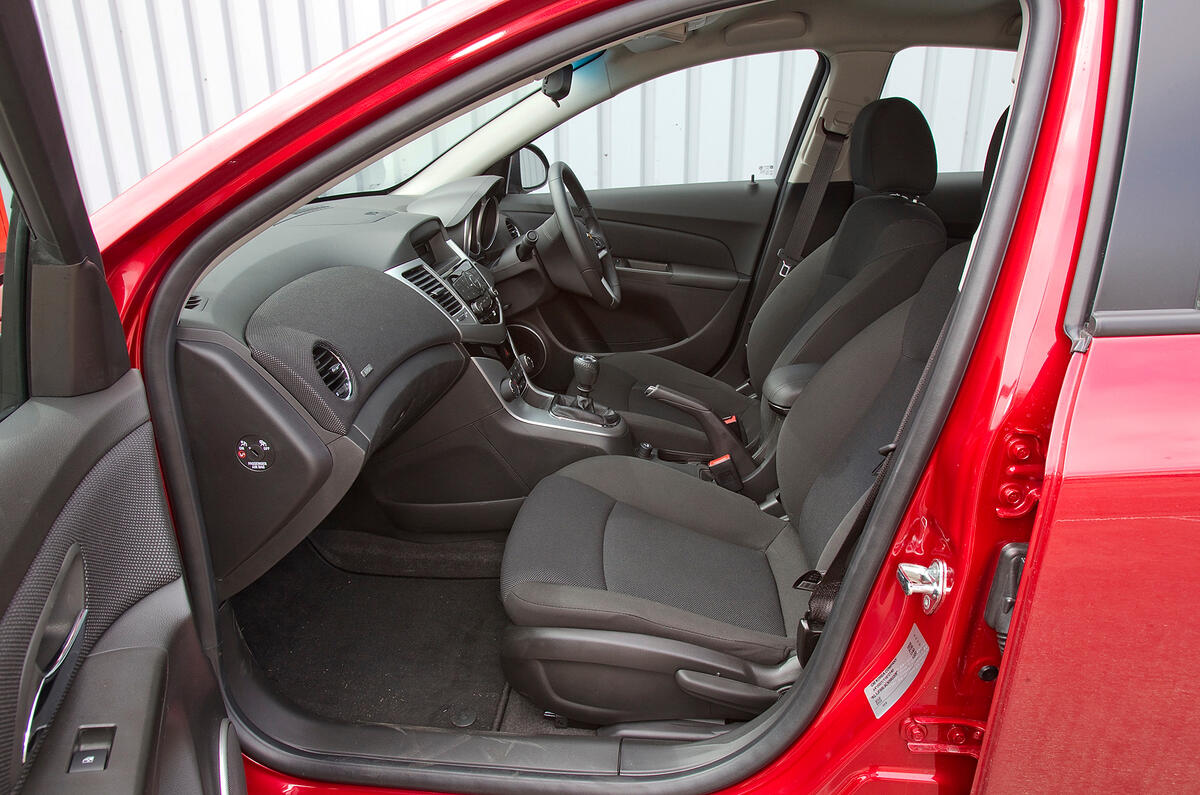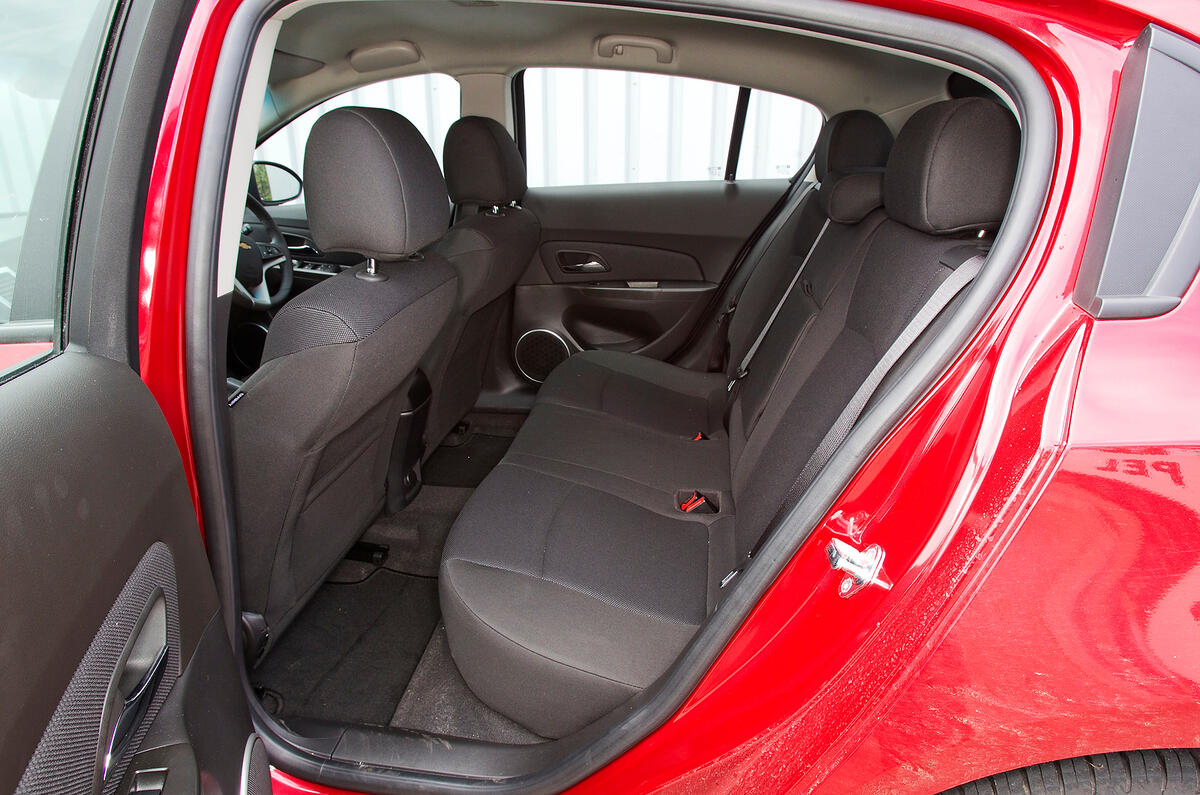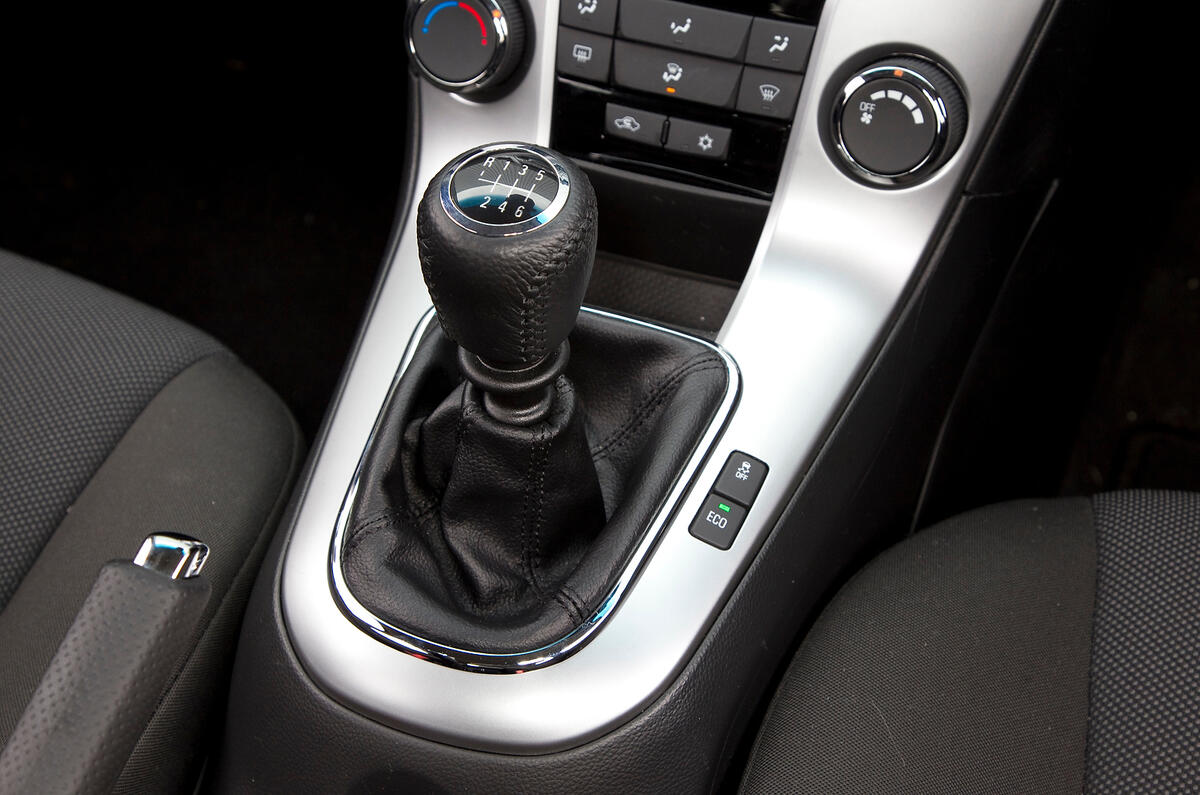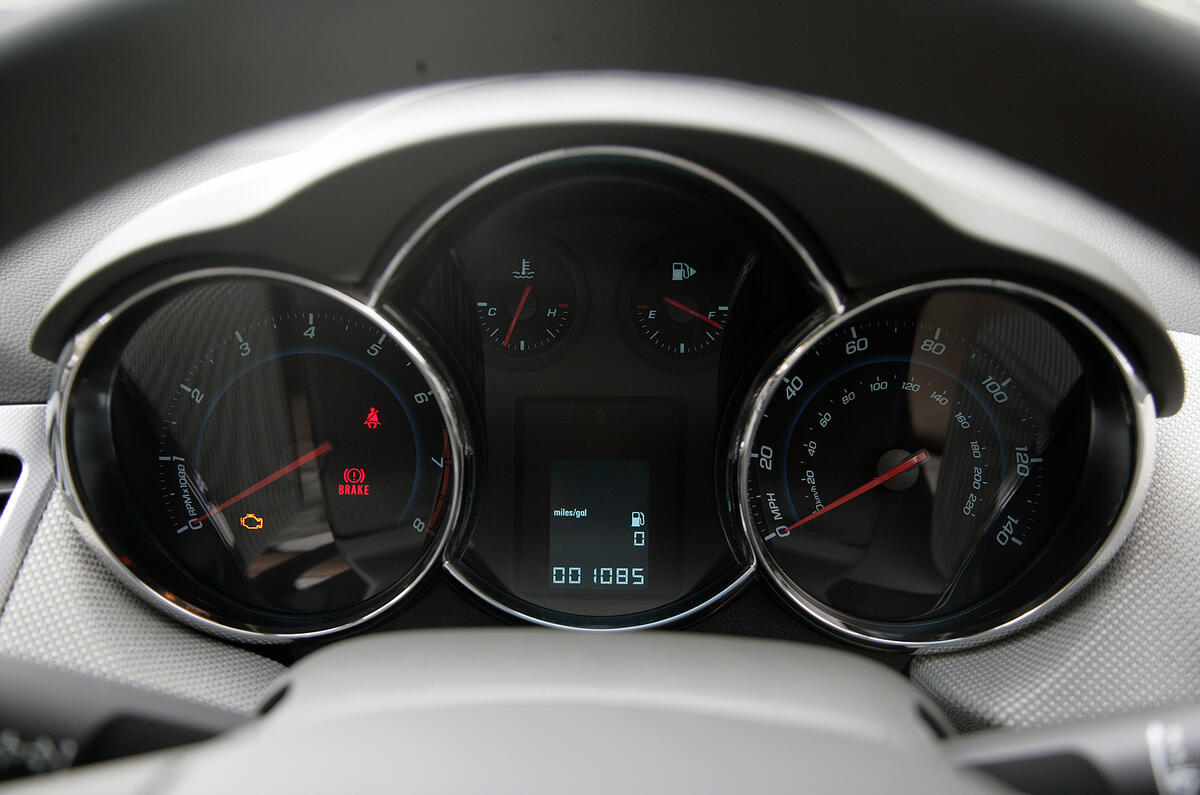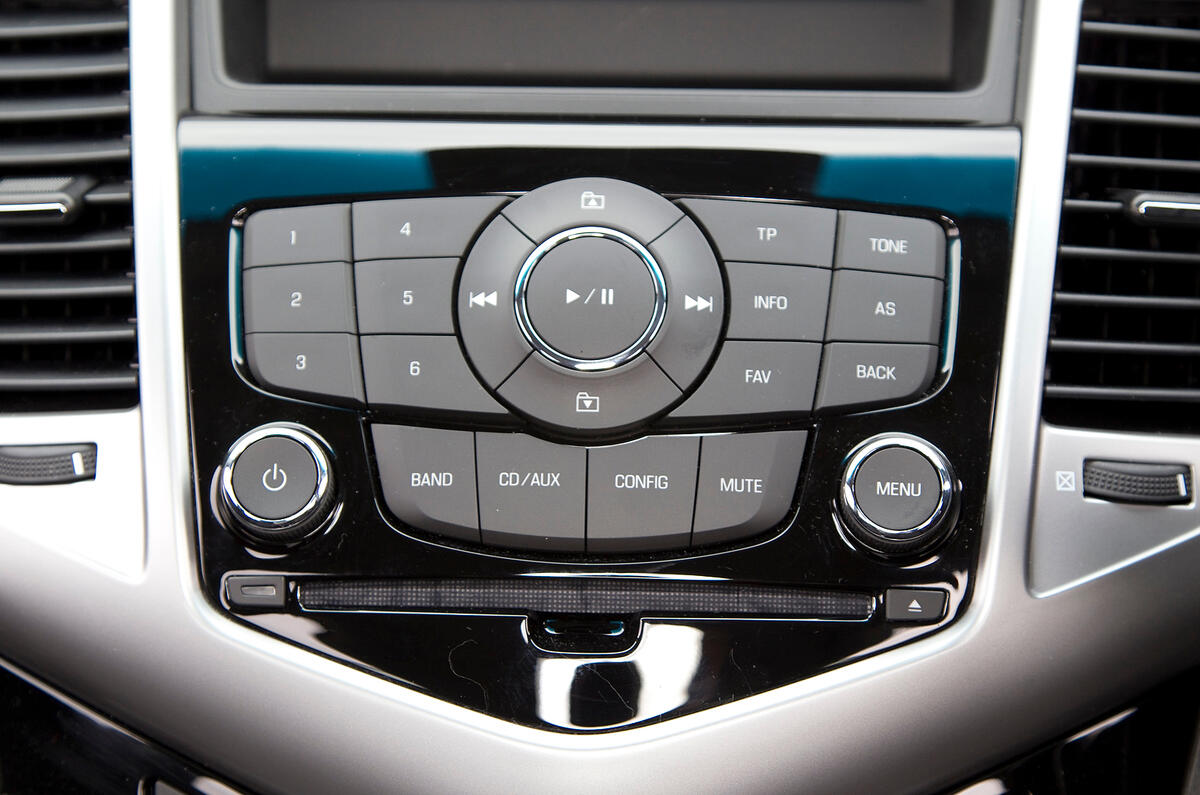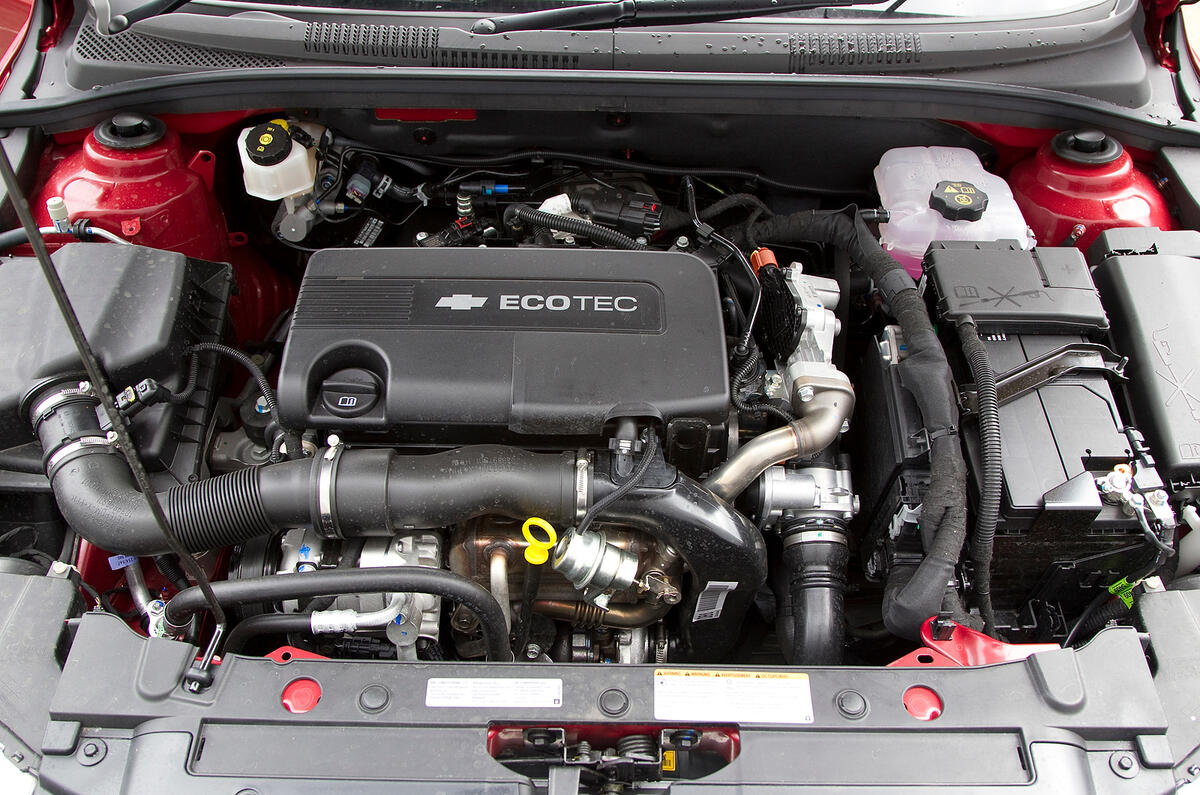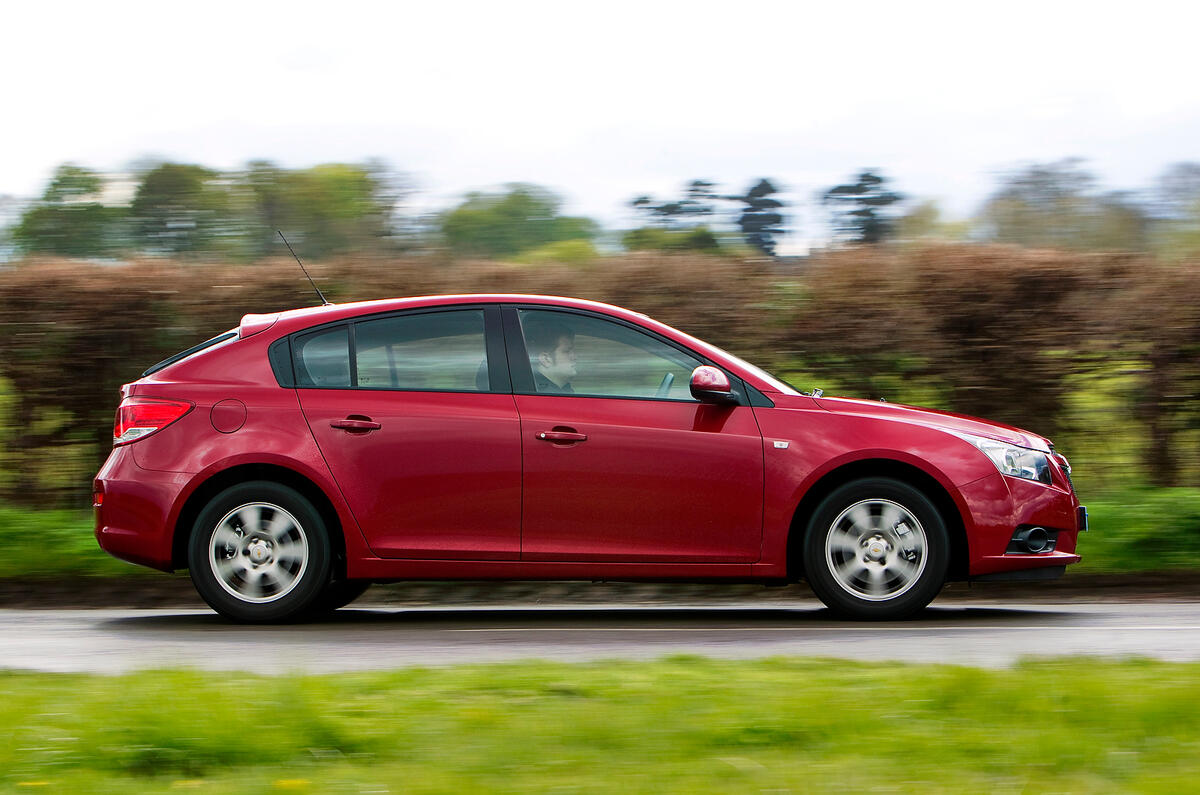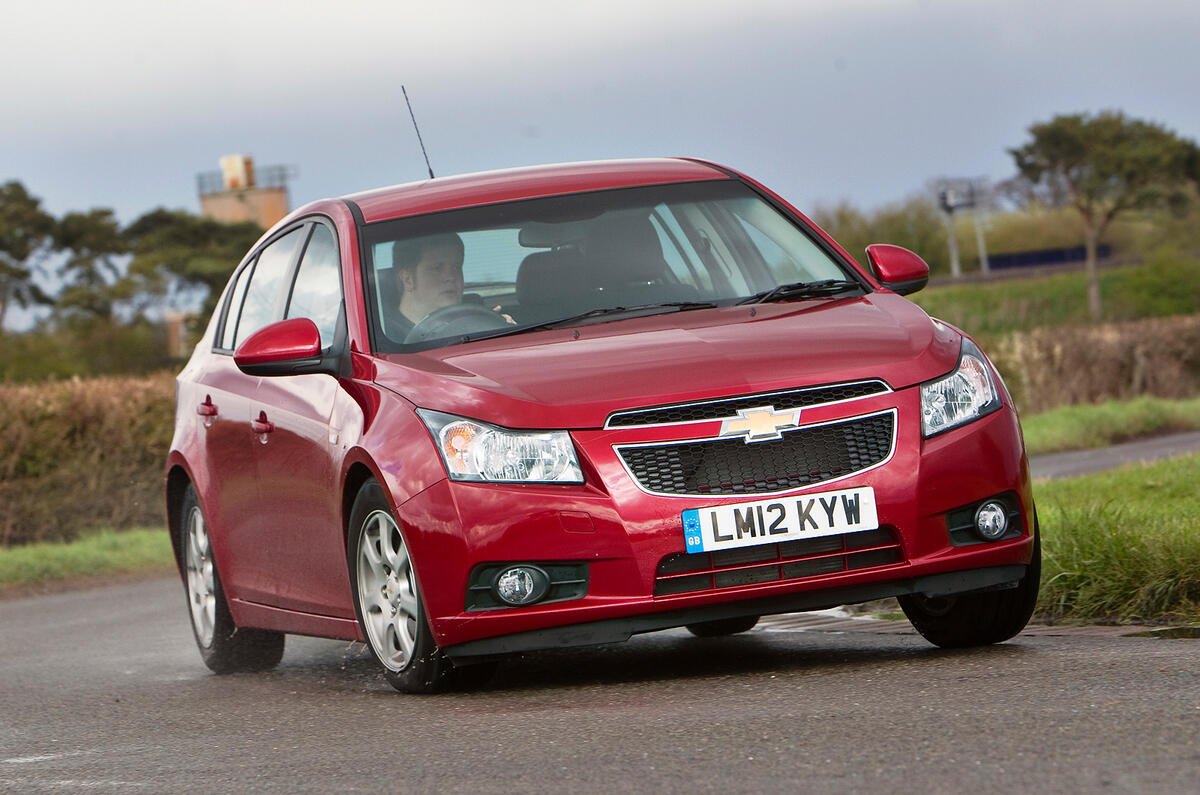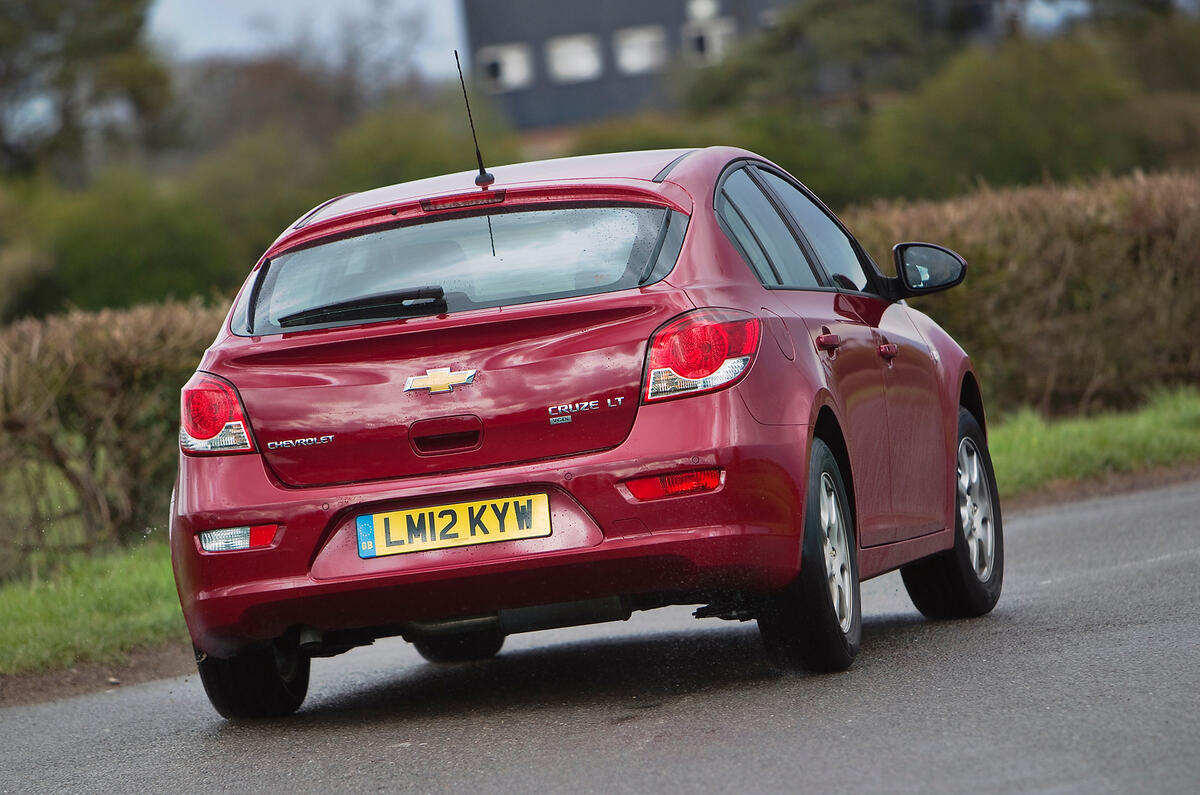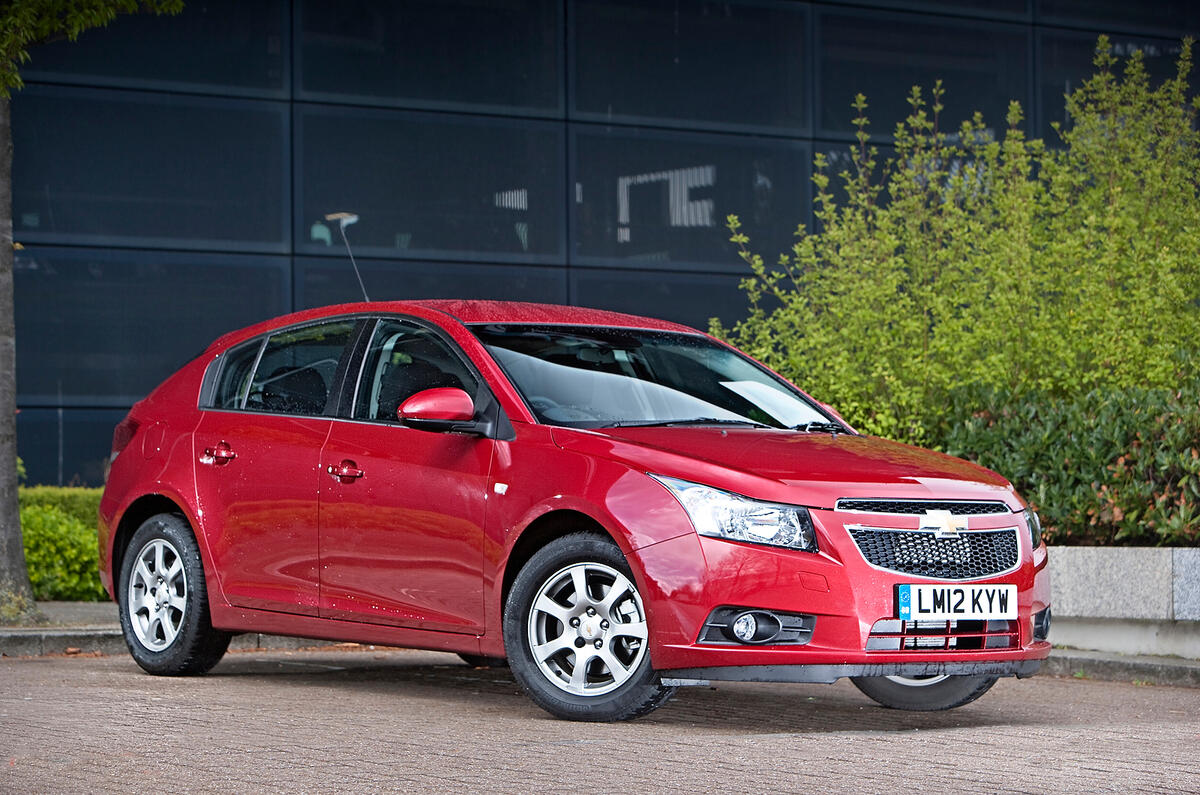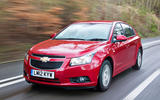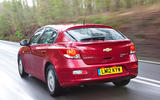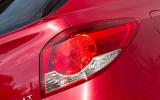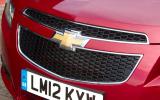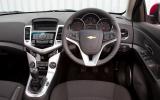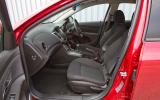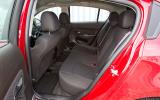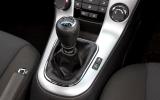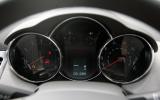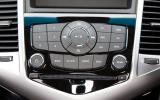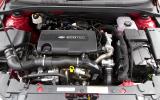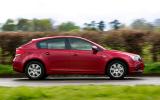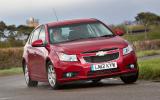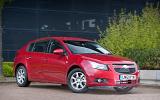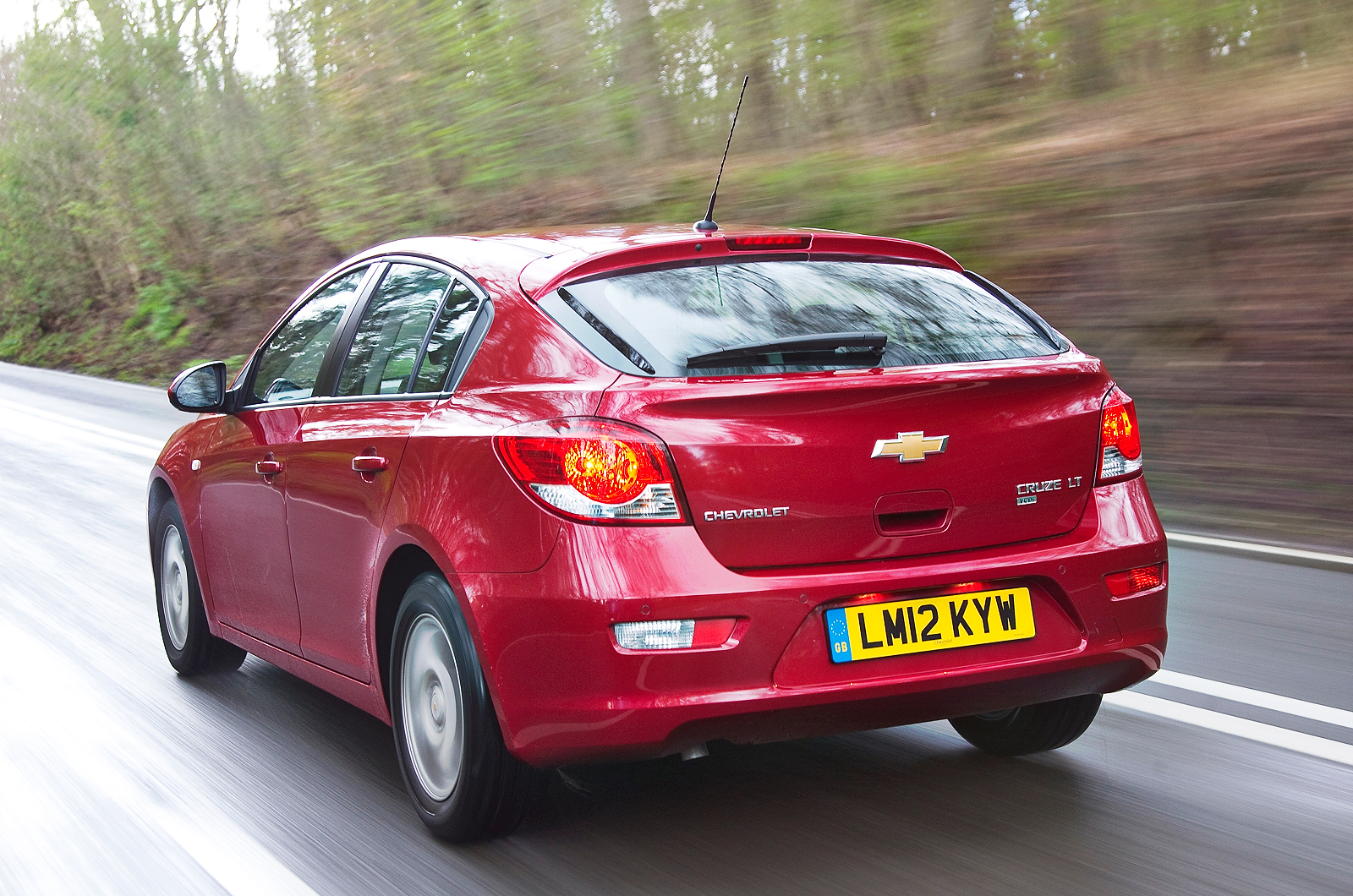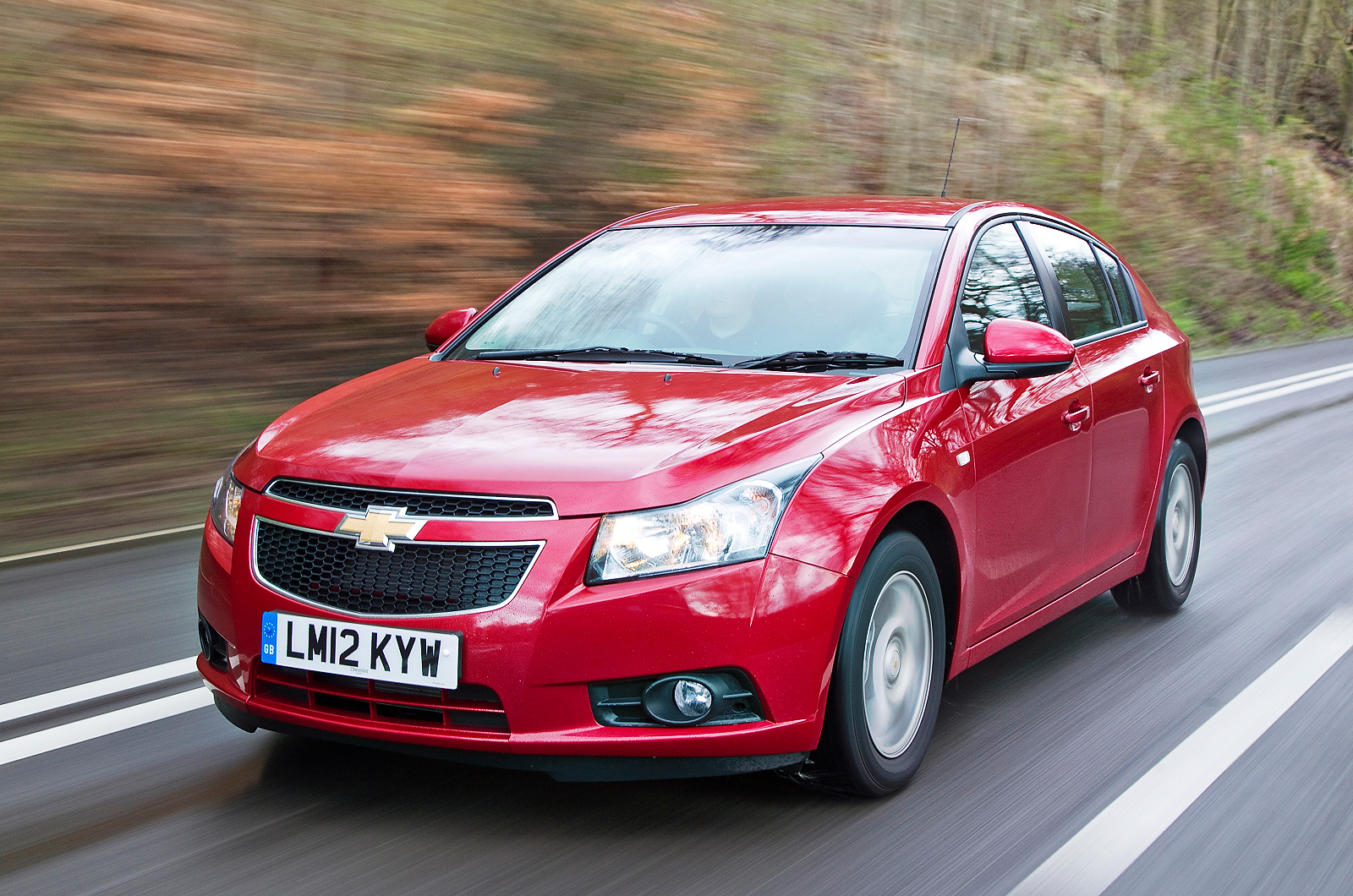‘Cruze’ is an appropriate name here, for that is what the Chevrolet Cruze does best. Its refinement and easy-going motorway pace make for a decent long-distance tool whatever engine choice you make.
This remains the case despite power delivery from the 1.8 petrol not rewarding high-rev adventures with an encouraging soundtrack. Instead, you hear the suppressed thresh between 3500rpm and 4000rpm of a busy four-cylinder engine that isn’t particularly eager to rev beyond this point unless pressed. It’s better to row it along on its torque, even though this is no more than adequate, and wait for your cruising speed to arrive.
The Chevrolet 1.8’s unsparkling 10.2sec 0-60mph time reflects an engine that does the job, gruffly, and only if you’re committed. At least there’s an even spread of power to work with, as demonstrated by a set of fourth-gear 20mph increment acceleration times that all come in at under 11 seconds.
That said, even its budget rivals can’t muster an engine of this size or output for the money and, gruff or not, the 1.8-litre Cruze does not have to strain too hard to maintain station and make decent cross-country progress.
The 1.6 petrol offers similar attributes for less money. However, the fuel and emissions savings are marginal at best, and the loss of performance is noticeable, especially if the car is fully laden.
The 50mpg 2.0-litre diesel offers first-class flexibility. Mated to a six-speed manual gearbox, it can hit 60mph in 8.3sec and go on to 127mph (9.1sec and 129mph with the six-speed auto ’box). It's decently refined, too.
The most favourable engine in the line-up is the 1.7 VCDi, the only diesel option offered with the estate. It offers around 20 percent more urge than an equivalenty-priced 120g/km Focus, Volkswagen Golf, Hyundai i30 or Octavia. With a 0-60mph time of 9.9sec, its around a second faster than its rivals too. The 45kg heavier estate takes half a second longer over the benchmark sprint.
Left in fifth gear, the Cruze will pull from 50mph to 70mph in 8.3sec, whereas the Hyundai i30 takes 10.8sec – which makes the Chevy that little bit more flexible and less demanding in everyday use.
GM’s 1.7-litre diesel engine is insulated effectively and is quieter than the VW Group’s 1.6 TDI lump, both under load and when cruising. Its power delivery tails off above 4000rpm, but torque between 1800rpm and 3000rpm is plentiful, and GM’s six-speed gearbox makes it easy to keep the engine within that range.
The Chevy is easy to drive, despite an engine management set-up that causes the revs to decay slowly when you lift your foot from the throttle. A forgiving clutch and a co-operative gearchange compensate, although shifting to fifth requires deliberate manipulation.
We enjoyed better performance from the brakes, which resisted fade well under duress in our tests and provided decent feel and progression with it. But even in its most powerful petrol form, the Cruze is in no danger of being mistaken for a budget-priced sports saloon.


